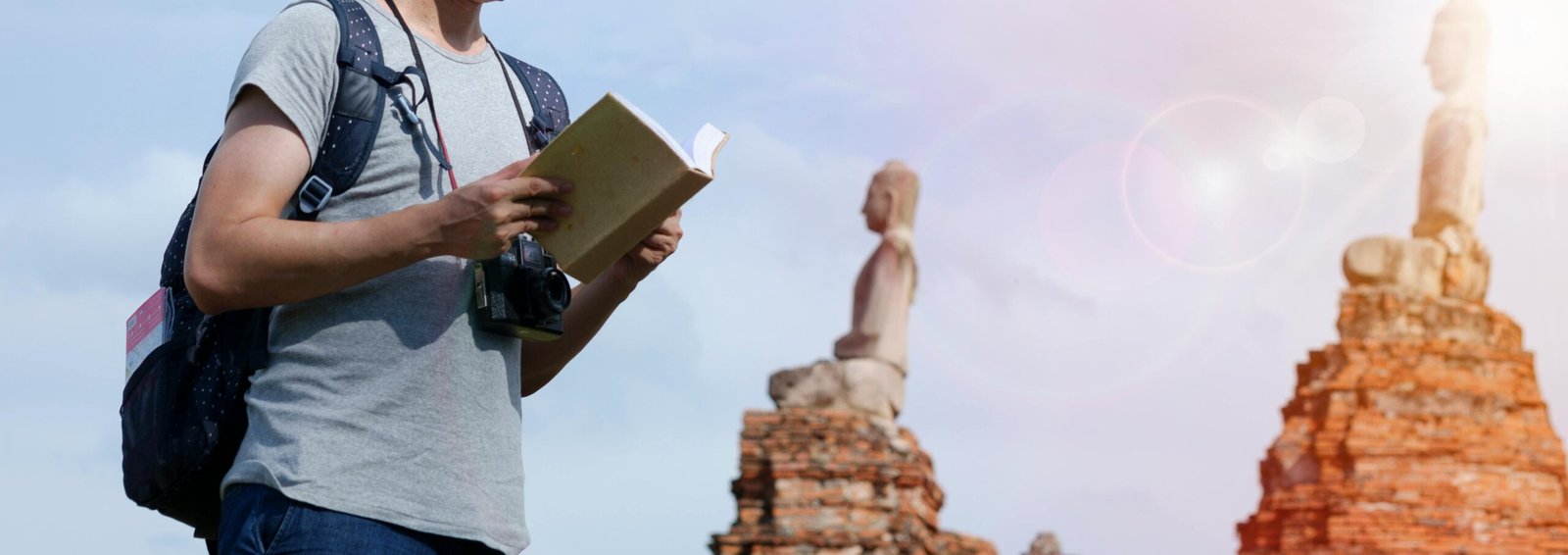
Do you dream of walking through ancient ruins and uncovering lost stories? If so, the career of a traveling historian might be your calling. This unique profession combines a deep passion for the past with the thrill of global exploration. It is a field that requires both intellect and adventure.
This guide will walk you through everything you need to know. We will cover the daily tasks, necessary skills, and the concrete steps to begin this incredible journey. Let’s explore how you can turn your love for history into a career without borders.
What Does a Traveling Historian Actually Do?
The role is much more than simply visiting historical sites. In reality, it involves rigorous work before, during, and after any trip. A traveling historian connects the dots between dusty archives and physical locations. This brings history to life.
First, they conduct extensive research. This may involve spending weeks in libraries or digital archives. They analyze primary sources like letters, maps, and official records. Afterward, the historian travels to the specific locations connected to their research. This fieldwork is crucial for gathering context and evidence.
On-site, they document their findings. For example, they might take detailed notes, photographs, or videos. Consequently, this information helps them build a comprehensive narrative. The final step is to share these discoveries through articles, books, lectures, or documentaries.
Essential Skills for the Aspiring Traveling Historian
To succeed in this field, you need a diverse set of skills. A genuine passion for history is the starting point. However, several other competencies are essential for a professional traveling historian.
Key Competencies
- Research and Analysis: You must know how to find and interpret historical sources. Furthermore, critical thinking allows you to evaluate their authenticity and significance.
- Strong Writing Skills: Communicating your findings clearly is vital. Your audience should understand your arguments and stories. Therefore, practice writing often.
- Language Proficiency: Speaking more than one language opens up new research opportunities. It allows you to access foreign archives and communicate with local experts.
- Adaptability and Problem-Solving: Travel can be unpredictable. Canceled flights and unexpected closures are common. As a result, a flexible and resourceful mindset is a major asset.
- Photography and Videography: Visuals are powerful storytelling tools. High-quality images and videos can make your work more engaging and accessible to a wider audience.
Steps to Launch Your Career in Historical Travel
Becoming a traveling historian requires dedication and a strategic plan. The path is not always linear, but certain steps can significantly improve your chances of success. Follow this roadmap to get started.
Your Action Plan
1. Get the Right Education: A solid academic foundation is critical. Most professionals hold at least a master’s degree in history, archaeology, or a related field. For many academic roles, a Ph.D. is necessary.
2. Gain Practical Experience: Do not wait until you graduate. For instance, volunteer for an archaeological dig. You can also apply for internships at museums or historical societies. This hands-on experience is invaluable.
3. Build a Professional Network: Connect with professors, researchers, and other historians. Attend academic conferences to present your work and meet peers. A strong network can lead to collaborations and job opportunities.
4. Develop a Niche: History is a vast field. Therefore, it helps to specialize in a specific time period, region, or theme. For example, focusing on medieval trade routes in the Mediterranean makes you a go-to expert in that area.
Career Paths and Opportunities
The career of a traveling historian is not limited to university professorships. There are many exciting opportunities across various industries where you can apply your skills.
- Academic Researcher: Teach at a university while conducting and publishing your own research.
- Museum Curator: Travel the world to acquire, authenticate, and exhibit historical artifacts.
- Documentary Consultant: Work with film crews to ensure historical accuracy for TV shows and movies.
- Specialized Tour Guide: Lead educational and immersive tours of significant historical sites.
- Author or Blogger: Write books, articles, or create online content about your historical travels and discoveries.
The journey of a traveling historian is challenging but incredibly fulfilling. It blends intellectual curiosity with a profound sense of adventure. By building the right skills and gaining experience, you can create a vibrant career dedicated to exploring and explaining our past.